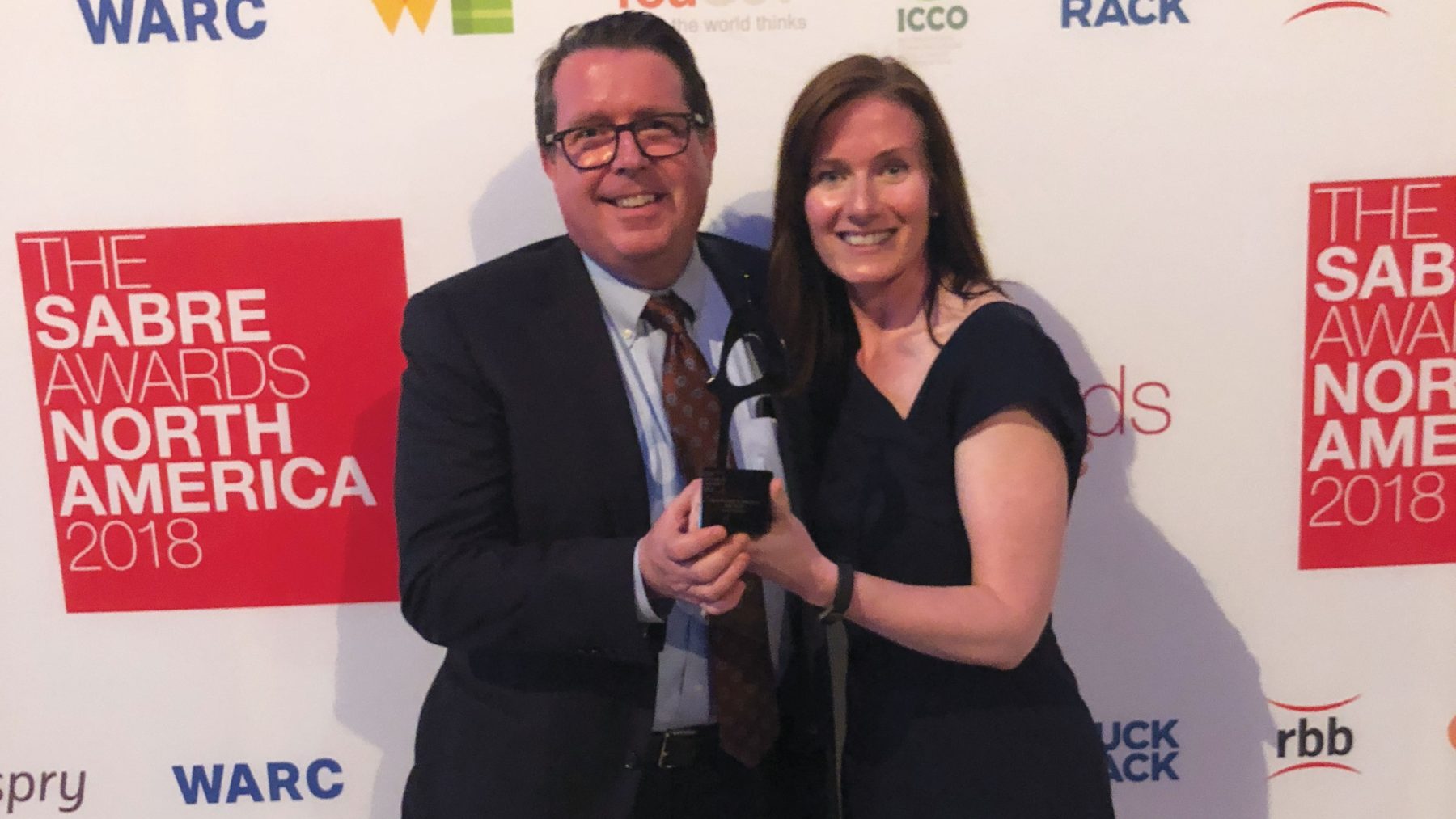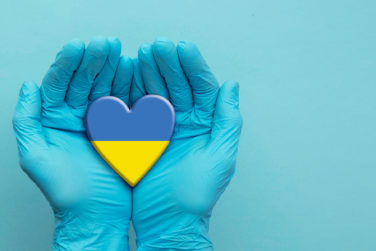HHS Secretary Alex Azar Poised to Tackle Drug Costs
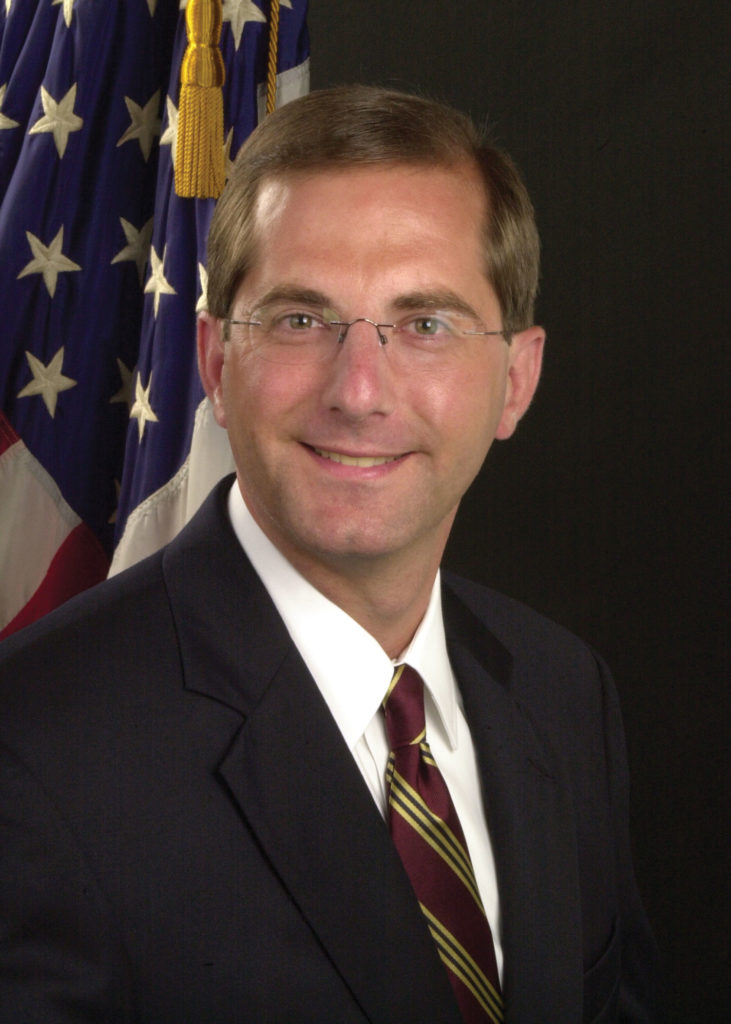
The administration is working on a plan to tackle high drug prices that would go “much further” than the proposals in President Trump’s budget, says Alex Azar, HHS Secretary, The Hill recently reported. Azar referred to this in-the-works plan as a “comprehensive strategy” and laid out the four areas the plan will address at a speech at the annual World Health Care Congress.
Azar has a list which includes tackling high list prices, seniors and government programs that are paying too much for drugs, rising out-of-pocket costs, and foreign governments “free-riding off of American investment in innovation.”
“Action is desperately needed: There’s little difference for a sick patient between a miracle cure that hasn’t been discovered and one that is too expensive to use,” Azar said.
“I believe we can help lower the cost of medicine while still promoting research that will transform the future of healthcare. Doing both is the only way forward,” Azar added during a speech largely focusing on transforming the healthcare system to one that pays for patients’ health outcomes, rather than one focused on the amount of care doctors deliver.
President Trump will weigh in on drug pricing after press time, and is not expected to reveal any new policy proposals other than an outreach for drug pricing ideas. Trump has used strong language against drug companies, repeatedly saying they are “getting away with murder,” though there’s been little action on drug prices to date.
In February, the Trump administration released its budget proposal that included ways to combat high drug prices, such as capping out-of-pocket spending for enrollees in Medicare’s prescription drug program and allowing up to five states to test drug coverage and financing in their Medicaid programs.
Biogen Pays to Reduce Royalties on Alzheimer’s Drug
After suffering plummeting shares to the tune of 20.9% over the past three months, Biogen plans to pay $50 million to privately held Neurimmune, a biopharmaceutical company dedicated to the development of innovative immunotherapeutics for human disease, to reduce royalty rates on the late-stage drug, aducanumab, according to MarketWatch. The payment will result in a 5% reduction that will land loyalty rates on potential commercial sales numbers within high single digits to numbers in the low teens. The company first licensed the drug from Neurimmune in 2017, paying $150 million in October 2017 to bring loyalty rates down by 15%.
EVIO Canada Acquires 50% Stake in Keystone Labs Inc.
A leading supplier of cannabis testing and scientific research for the regulated cannabis industry recently closed its 50% acquisition of Keystone Labs Inc., a privately held Canada accredited testing facility with a GMP license, and a focus on a full array of analytical and microbiological testing for pharma, biotech, med device, medical cannabis, and other related industries.
“We are excited to have completed this transaction and add Keystone Labs to our portfolio,” said William Waldrop, CEO and Co-founder of EVIO. “In Canada, cannabis is federally legal, however, there is a limited number of testing facilities licensed to provide services. Keystone Labs has been licensed for two years, has a strong management team, and we are confident that we can leverage our background and deployment strategies to capture significant market share.”
Cigna Finds Loneliness at Epidemic Levels
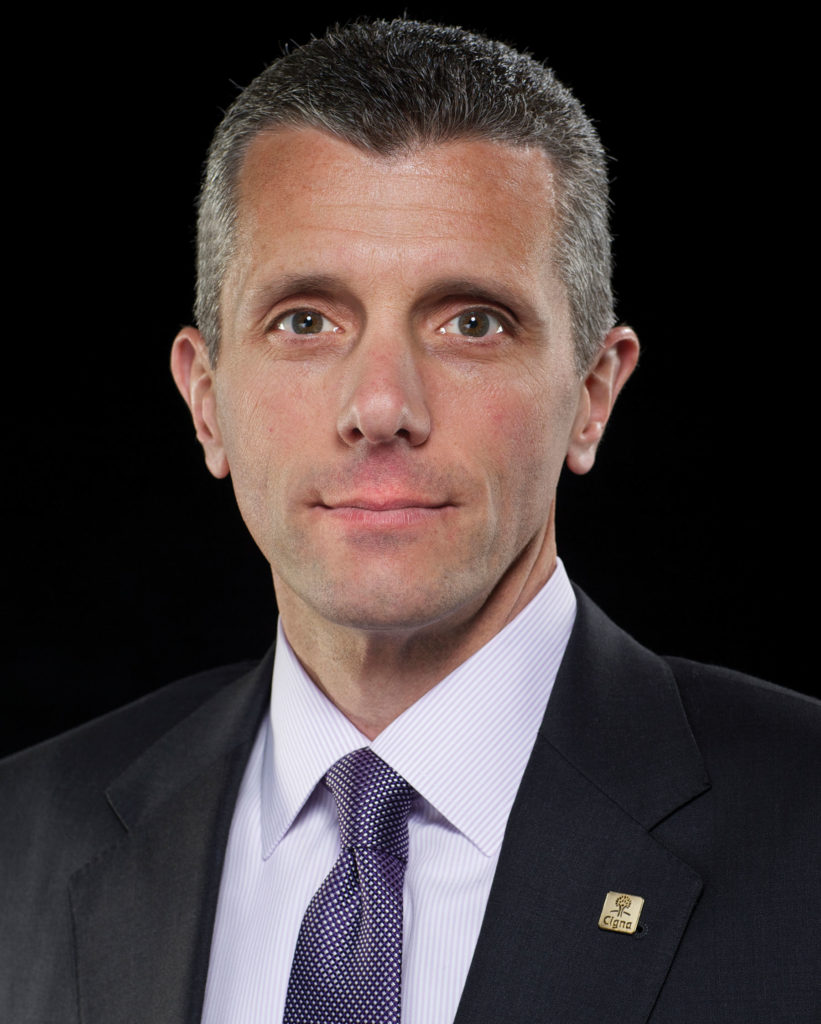
Results released by Health Insurance giant, Cigna, in a coordinated study with IPSOS, found that American adults across the country are a lonely lot—and that significantly affects health. The evaluation of loneliness was measured by a score of 43 or higher on the UCLA Loneliness Scale, a 20-item questionnaire developed to assess subjective feelings of loneliness, as well as social isolation. The survey of more than 20,000 U.S. adults ages 18 years and older revealed some alarming findings:
- Nearly halfreport sometimes or always feeling alone (46%) or left out (47%).
- One in four (27%) rarely or never feel that people really understand them.
- Two in five sometimes or always feel that their relationships are not meaningful (43%) and that they are isolated from others (43%).
- One in fivepeople report they rarely or never feel close to people or feel they have people they can talk to (18%).
- Americans who live with others are less likely to be lonely (average loneliness score of 43.5) compared to those who live alone (46.4). However, this does not apply to single parents/guardians (average loneliness score of 48.2)—even though they live with children, they are more likely to be lonely.
- Just above half (53%) have meaningful in-person social interactions, such as extended conversations with a friend, or spending quality time with family on a daily basis.
- Generation Z (adults ages 18-22) is the loneliest generationand claims to be in worse health than older generations.
- Social media use alone is not a predictor of loneliness; respondents defined as very heavy users of social media have a loneliness score (43.5) that is not markedly different from the score of those who never use social media (41.7).
“We view a person’s physical, mental, and social health as being entirely connected,” says David M. Cordani, President and CEO of Cigna. “It’s for this reason that we regularly examine the physical, mental, and social needs of our people and the communities they live in.”
“In analyzing this closely,” he adds, “we’re seeing a lack of human connection, which ultimately leads to a lack of vitality—or a disconnect between mind and body. We must change this trend by reframing the conversation to be about ‘mental wellness’ and ‘vitality’ to speak to our mental-physical connection. When the mind and body are treated as one, we see powerful results.”
On a positive note, among other things, the workplace may offer some respite. “There is an inherent link between loneliness and the workplace, with employers in a unique position to be a critical part of the solution,” said Douglas Nemecek, MD, Chief Medical Officer for Behavioral Health at Cigna. The company is also launching an effort to address the loneliness epidemic to improve Americans’ overall wellness and vitality.
The Winner of Holmes 2018 Healthcare Agency of the Year is…
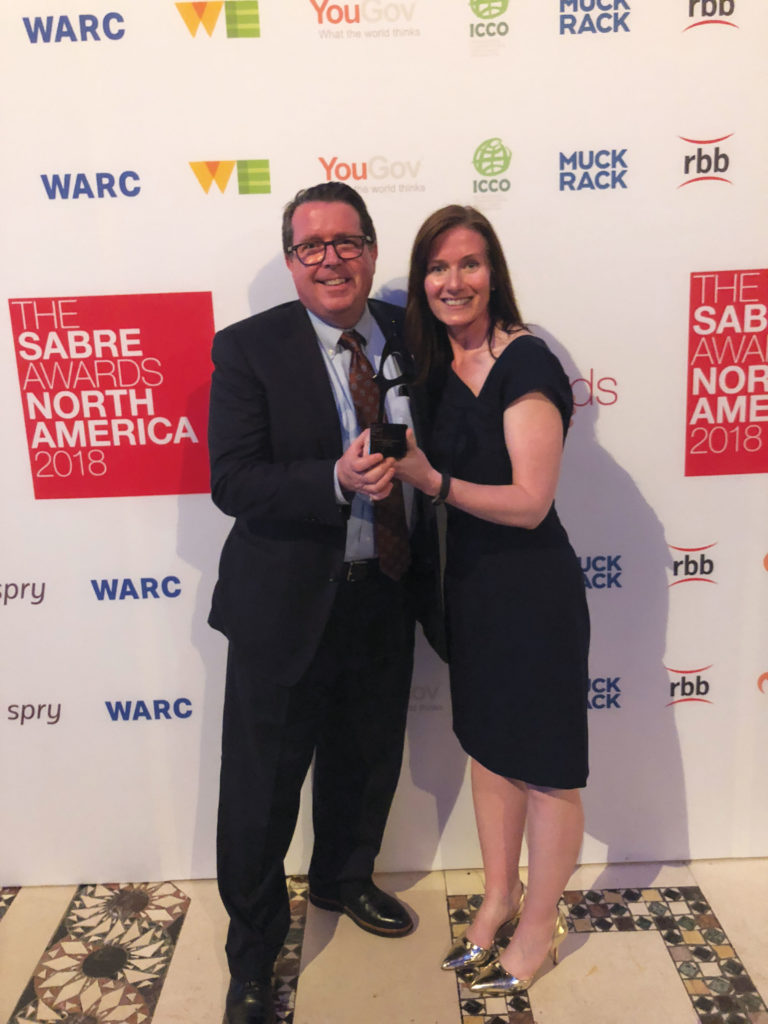
The global communications and marketing firm, Finn Partners, was the happy recipient of the prestigious Holmes 2018 Healthcare Agency of the Year. It’s no surprise considering that The Finn Health Practice is among the agency’s largest and fastest-growing segments, with best-in-class clients spanning patient groups, payers, product innovators, policymakers, and provider organizations.
In the analysis of Finn Partners’ selection, Paul Holmes, Founder and Chair, The Holmes Group, wrote: “The performance of the firm’s healthcare practice stands out—[leveraging] the collaborative nature of the Finn Partners culture (partnering with colleagues who bring tech, consumer, and social impact expertise) to establish the health practice in 12 of Finn’s 16 offices around the world.”
“Finn Partners has been recognized repeatedly by the SABRE Awards since our inception, and now we add to that distinction the award for Healthcare Agency of the Year,” said Peter Finn, CEO. “We are built on and structured to execute on core values, including collaboration and making a difference in the world. These values enable us to pull people together to focus on delivering for our clients.”
Valeant Changes Name to Bausch Health
Valeant Pharmaceuticals, which took heat over the past few years for its price gouging practices, announced that it will change its name to Bausch Health Companies.
“Becoming Bausch Health Companies is a major step forward in our transformation,” Joseph C. Papa, Chairman and CEO, Valeant, said in a statement. “The Bausch name embodies the rich history of innovation, fortitude and dedication to patient health dating back to when J.J. Bausch opened his first optical goods shop more than 165 years ago. These qualities form the foundation of who we are today as we continue to build an innovative company striving to improve the health of patients globally.”
As part of the name change, the company will roll out a new corporate brand identity in July 2018, which will include new imagery and a redesigned website. The company will also trade under a new symbol, BHC. However, all of Valeant’s current businesses and subsidiaries will continue to operate under their existing names.
“We believe Bausch Health Companies more accurately represents the full scope of the company today,” Papa adds. “A leader in the development and manufacture of a wide range of pharmaceutical, medical device and over-the-counter products, primarily in the therapeutic areas of eye health, gastroenterology, and dermatology.”
Takeda Acquires Shire for $62 Billion
In the biggest M&A deal in the life sciences industry this year, Takeda reached an agreement to acquire Shire for $62 billion. The deal, still subject to the approval of both company’s stakeholders, would be the largest overseas purchase by a Japanese company and would put Takeda among the top 10 global drug manufacturers, according to Reuters.
The size of the deal, however, will make Takeda one of the most indebted drug companies. In order to pay off these debts quickly, the company plans to cut thousands of jobs and reduce any duplicate drug research between the two companies. Under the terms of the deal, Takeda will pay the amount agreed to in 46% cash and 54% stock. Shire investors will receive $30.33 in cash and either 0.839 new Takeda shares or 1.678 Takeda American depositary shares for each share, according to Reuters. In order to finance part of the deal, Takeda will issue about $36.6 billion worth of new shares, which actually exceeds the Japanese company’s current market capitalization, according to Nikkei Asian Review.
“I think it is a good deal for Shire shareholders but not everybody may think that,” Polar Capital fund manager Dan Mahony, who owns both Shire and Takeda stock, told Reuters. “However, the risk is that if shareholders vote this down then the shares are going to go down a lot.”
Takeda chief executive Christophe Weber is confident both boards will approve the deal and that the combined company will generate substantial cash flow. Takeda is currently projecting annual cost synergies of at least $1.4 billion three years after completion, including $600 million in research and development costs.
“Shire’s highly complementary product portfolio and pipeline, as well as experienced employees, will accelerate our transformation for a stronger Takeda,” Weber told BBC News. “Together, we will be a leader in providing targeted treatments in gastroenterology, neuroscience, oncology, rare diseases, and plasma-derived therapies.”

